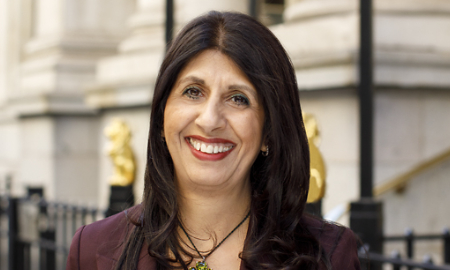Sign up for our free daily newsletter
YOUR PRIVACY - PLEASE READ CAREFULLY DATA PROTECTION STATEMENT
Below we explain how we will communicate with you. We set out how we use your data in our Privacy Policy.
Global City Media, and its associated brands will use the lawful basis of legitimate interests to use
the
contact details you have supplied to contact you regarding our publications, events, training,
reader
research, and other relevant information. We will always give you the option to opt out of our
marketing.
By clicking submit, you confirm that you understand and accept the Terms & Conditions and Privacy Policy
The Law Society of England and Wales and the Bar Council have marked the fourth anniversary of the Women in Law Pledge, which asks law firms, in-house counsel and chartered legal executives to commit to greater gender balance at all levels across the legal profession, tackling the gender pay gap and other inequalities.
Launched in 2019, under Christina Blacklaws’ presidency of the Law Society, the pledge has led to positive developments in the workplace, as commercial firms like Eversheds Sutherland have agreed to abide by its recommendations.
Among the actions required by the pledge include analysis of pay gap data, especially on partner pay, with greater monitoring of the gender diversity of newly appointed partners through recruitment, promotion targets and creating action plans to address inequality.
Since Blacklaws launched the pledge, two male and two female presidents have monitored progress, the anniversary of which the incumbent, Lubna Shuja, said came at “an important time for the profession”.
“We must continue to work collectively to enact positive change for gender equality in the profession,” she said, saying that despite women making up 53% of the profession, growth in the number of women becoming partners was slow but steady, with women continuing to experience barriers in reaching senior leadership posts.
“Unfair allocation of work, unfavourable promotion structures, unacceptable work-life balance and the lack of visible senior women role models need to be addressed if we want to see women in law thrive,” Shuja added.
Bar Council chair Nick Vineall KC used his January 2023 inaugural address to endorse the pledge, highlighting the need to ensure equal remuneration for like work.
He said: “We should never be afraid of collecting and analysing data about progression and earnings in chambers or our practice areas.”
He added: “Good sets are already doing this, learning about who is thriving and who needs support. Sets that do this ensure everyone has the same opportunities to advance their career.”
Rachel Krys, the Bar Council’s equality and diversity consultant, said acceptance of the pledge had grown gradually, with 27 chambers having signed, including commercial sets like Fountain Court.
She added: “We’ve been working with these chambers to develop and review targets for better representation and equitable earnings. The pledge has opened up a different type of conversation at the self-employed Bar about how chambers can support members to build thriving practices, which is positive.
“We check in with signatories yearly, and the Bar Council offers popular training and support for chambers in monitoring earnings and setting stretching targets to achieve better outcomes for women and under-represented groups.”
Email your news and story ideas to: [email protected]






